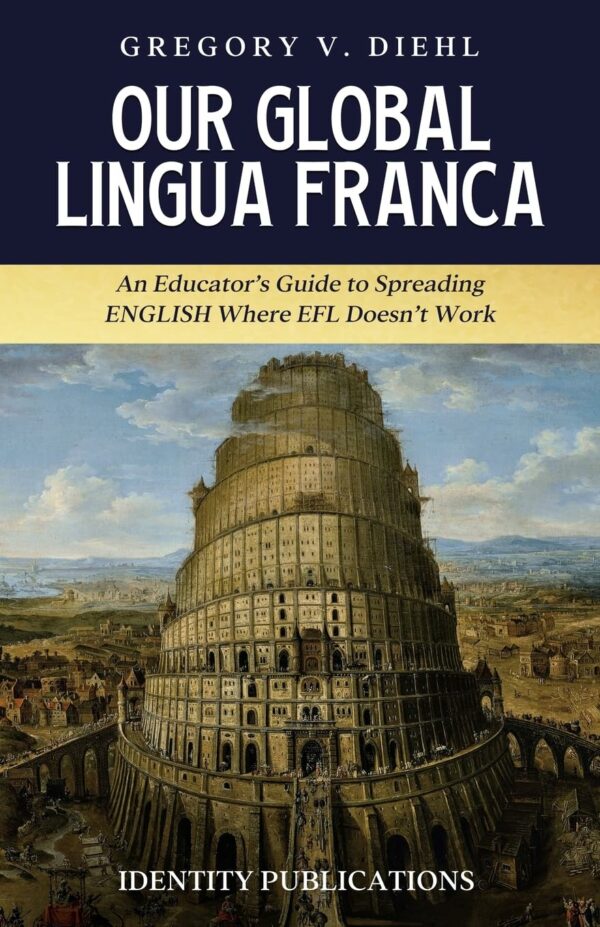- Title:
- Our Global Lingua Franca: An Educator’s Guide to Spreading English Where EFL Doesn’t Work
- Author:
- Gregory Diehl
- Release:
- August 26, 2023
- Format:
- Audiobook
- Narrator:
- Gregory Diehl
I’m not entirely sure what to say about this book, I have many thoughts, however, I’m not sure the best approach to conveying them. To start off with, this is a fantastic teaching tool. In many ways, it feels like a beginners manual for people wishing to teach English, is littered with examples and footnotes to illustrate points as they’re made. That being said, it did feel like a bit of a slog the first time I listened to it. It took me several sessions, and then I returned to it and listened to the entire thing in one sitting (2.55x speed).
The thought that entered my mind both times I listened to it was how unfortunate that it has such a limited audience. I think many EFL speakers could learn a thing or two about helping to educate others, without needing to be in a teaching position, if they were to give the book a listen or read.
The biggest, and really the only issue I took with it was near the beginning of the lessons. He mentioned giving examples of language quirks that some people non-native speakers do, without “calling them out.” I found that annoying, as I personally find learning the reasons behind things like that to be fascinating. Dickheads are going to be dickheads, but those of us with a passion for learning would find those examples and learning experiences to be a bonus.
One such example is how Japanese doesn’t have the L sound, so people stereotype Asians as saying things like “Radder” instead of ladder. Another one I learned years ago was how Chinese doesn’t use time the same way we do. They say things such as “I go to store” instead of “I’m going to the store.”, which again, explains a bunch of Asian language stereotypes to me. People speak like that to mock Asian people who’ve learned English, but I find it fascinating that they’re speaking these words in English, how they’d be spoken in Chinese.
I feel that avoiding explaining these things and then referring to them in a roundabout way does a disservice. Especially since the oxygen thieves who use these stereotypes aren’t the type of people who’d read or listen to this book anyway. There were several of these examples littered throughout the book, and I didn’t know which language or people he was referring to, making them pointless to me, and denying readers a learning opportunity in the process.
This is the second Gregory Diehl book I’ve reviewed; the first was Everyone is an Entrepreneur. It’s a book that has left a lasting impact on my life, and one thought that crossed my mind as I listened to these two books is how if my teachers in school were even half as interesting, educational, or compelling as these books, I might have paid attention.
One final thought I had on the book, and took issue with both times was using audiobooks as an example of a good source of understanding how English speakers emote (or something, I didn’t take notes. Don’t judge me.) I couldn’t disagree more. I’ve spent more than 1,000 hours listening to hundreds of audiobooks and I often lose interest in them due to how mediocre to lifeless most narrators are, they suck the fucking life out of otherwise fantastic stories. I’m pretty sure using English audiobooks as a method of learning to speak English naturally would lead to a generation of deadpan, emotionless, monotone English speakers who don’t understand why everybody groans or snickers when they begin to speak.
